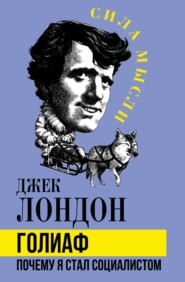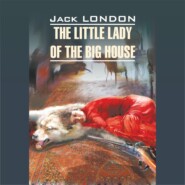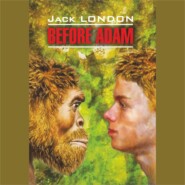По всем вопросам обращайтесь на: info@litportal.ru
(©) 2003-2025.
✖
White Fang
Настройки чтения
Размер шрифта
Высота строк
Поля
There was, furthermore, another virtue in the fan-formation. The ropes of varying length prevented the dogs attacking from the rear those that ran in front of them. For a dog to attack another, it would have to turn upon one at a shorter rope. In which case it would find itself face to face with the dog attacked, and also it would find itself facing the whip of the driver. But the most peculiar virtue of all lay in the fact that the dog that strove to attack one in front of him must pull the sled faster, and that the faster the sled travelled, the faster could the dog attacked run away. Thus, the dog behind could never catch up with the one in front. The faster he ran, the faster ran the one he was after, and the faster ran all the dogs. Incidentally, the sled went faster, and thus, by cunning indirection, did man increase his mastery over the beasts.
Mit-sah resembled his father, much of whose grey wisdom he possessed. In the past he had observed Lip-lip’s persecution of White Fang; but at that time Lip-lip was another man’s dog, and Mit-sah had never dared more than to shy an occasional stone at him. But now Lip-lip was his dog, and he proceeded to wreak his vengeance on him by putting him at the end of the longest rope. This made Lip-lip the leader, and was apparently an honour! but in reality it took away from him all honour, and instead of being bully and master of the pack, he now found himself hated and persecuted by the pack.
Because he ran at the end of the longest rope, the dogs had always the view of him running away before them. All that they saw of him was his bushy tail and fleeing hind legs – a view far less ferocious and intimidating than his bristling mane and gleaming fangs. Also, dogs being so constituted in their mental ways, the sight of him running away gave desire to run after him and a feeling that he ran away from them.
The moment the sled started, the team took after Lip-lip in a chase that extended throughout the day. At first he had been prone to turn upon his pursuers, jealous of his dignity and wrathful; but at such times Mit-sah would throw the stinging lash of the thirty-foot cariboo-gut whip into his face and compel him to turn tail and run on. Lip-lip might face the pack, but he could not face that whip, and all that was left him to do was to keep his long rope taut and his flanks ahead of the teeth of his mates.
But a still greater cunning lurked in the recesses of the Indian mind. To give point to unending pursuit of the leader, Mit-sah favoured him over the other dogs. These favours aroused in them jealousy and hatred. In their presence Mit-sah would give him meat and would give it to him only. This was maddening to them. They would rage around just outside the throwing-distance of the whip, while Lip-lip devoured the meat and Mit-sah protected him. And when there was no meat to give, Mit-sah would keep the team at a distance and make believe to give meat to Lip-lip.
White Fang took kindly to the work. He had travelled a greater distance than the other dogs in the yielding of himself to the rule of the gods, and he had learned more thoroughly the futility of opposing their will. In addition, the persecution he had suffered from the pack had made the pack less to him in the scheme of things, and man more. He had not learned to be dependent on his kind for companionship. Besides, Kiche was well-nigh forgotten; and the chief outlet of expression that remained to him was in the allegiance he tendered the gods he had accepted as masters. So he worked hard, learned discipline, and was obedient. Faithfulness and willingness characterised his toil. These are essential traits of the wolf and the wild-dog when they have become domesticated, and these traits White Fang possessed in unusual measure.
A companionship did exist between White Fang and the other dogs, but it was one of warfare and enmity. He had never learned to play with them. He knew only how to fight, and fight with them he did, returning to them a hundred-fold the snaps and slashes they had given him in the days when Lip-lip was leader of the pack. But Lip-lip was no longer leader – except when he fled away before his mates at the end of his rope, the sled bounding along behind. In camp he kept close to Mit-sah or Grey Beaver or Kloo-kooch. He did not dare venture away from the gods, for now the fangs of all dogs were against him, and he tasted to the dregs the persecution that had been White Fang’s.
With the overthrow of Lip-lip, White Fang could have become leader of the pack. But he was too morose and solitary for that. He merely thrashed his team-mates. Otherwise he ignored them. They got out of his way when he came along; nor did the boldest of them ever dare to rob him of his meat. On the contrary, they devoured their own meat hurriedly, for fear that he would take it away from them. White Fang knew the law well: to oppress the weak and obey the strong. He ate his share of meat as rapidly as he could. And then woe the dog that had not yet finished! A snarl and a flash of fangs, and that dog would wail his indignation to the uncomforting stars while White Fang finished his portion for him.
Every little while, however, one dog or another would flame up in revolt and be promptly subdued. Thus White Fang was kept in training. He was jealous of the isolation in which he kept himself in the midst of the pack, and he fought often to maintain it. But such fights were of brief duration. He was too quick for the others. They were slashed open and bleeding before they knew what had happened, were whipped almost before they had begun to fight.
As rigid as the sled-discipline of the gods, was the discipline maintained by White Fang amongst his fellows. He never allowed them any latitude. He compelled them to an unremitting respect for him. They might do as they pleased amongst themselves. That was no concern of his. But it was his concern that they leave him alone in his isolation, get out of his way when he elected to walk among them, and at all times acknowledge his mastery over them. A hint of stiff-leggedness on their part, a lifted lip or a bristle of hair, and he would be upon them, merciless and cruel, swiftly convincing them of the error of their way.
He was a monstrous tyrant. His mastery was rigid as steel. He oppressed the weak with a vengeance. Not for nothing had he been exposed to the pitiless struggles for life in the day of his cubhood, when his mother and he, alone and unaided, held their own and survived in the ferocious environment of the Wild. And not for nothing had he learned to walk softly when superior strength went by. He oppressed the weak, but he respected the strong. And in the course of the long journey with Grey Beaver he walked softly indeed amongst the full-grown dogs in the camps of the strange man-animals they encountered.
The months passed by. Still continued the journey of Grey Beaver. White Fang’s strength was developed by the long hours on trail and the steady toil at the sled; and it would have seemed that his mental development was well-nigh complete. He had come to know quite thoroughly the world in which he lived. His outlook was bleak and materialistic. The world as he saw it was a fierce and brutal world, a world without warmth, a world in which caresses and affection and the bright sweetnesses of the spirit did not exist.
He had no affection for Grey Beaver. True, he was a god, but a most savage god. White Fang was glad to acknowledge his lordship, but it was a lordship based upon superior intelligence and brute strength. There was something in the fibre of White Fang’s being that made his lordship a thing to be desired, else he would not have come back from the Wild when he did to tender his allegiance. There were deeps in his nature which had never been sounded. A kind word, a caressing touch of the hand, on the part of Grey Beaver, might have sounded these deeps; but Grey Beaver did not caress, nor speak kind words. It was not his way. His primacy was savage, and savagely he ruled, administering justice with a club, punishing transgression with the pain of a blow, and rewarding merit, not by kindness, but by withholding a blow.
So White Fang knew nothing of the heaven a man’s hand might contain for him. Besides, he did not like the hands of the man-animals. He was suspicious of them. It was true that they sometimes gave meat, but more often they gave hurt. Hands were things to keep away from. They hurled stones, wielded sticks and clubs and whips, administered slaps and clouts, and, when they touched him, were cunning to hurt with pinch and twist and wrench. In strange villages he had encountered the hands of the children and learned that they were cruel to hurt. Also, he had once nearly had an eye poked out by a toddling papoose. From these experiences he became suspicious of all children. He could not tolerate them. When they came near with their ominous hands, he got up.
It was in a village at the Great Slave Lake, that, in the course of resenting the evil of the hands of the man-animals, he came to modify the law that he had learned from Grey Beaver: namely, that the unpardonable crime was to bite one of the gods. In this village, after the custom of all dogs in all villages, White Fang went foraging, for food. A boy was chopping frozen moose-meat with an axe, and the chips were flying in the snow. White Fang, sliding by in quest of meat, stopped and began to eat the chips. He observed the boy lay down the axe and take up a stout club. White Fang sprang clear, just in time to escape the descending blow. The boy pursued him, and he, a stranger in the village, fled between two tepees to find himself cornered against a high earth bank.
There was no escape for White Fang. The only way out was between the two tepees, and this the boy guarded. Holding his club prepared to strike, he drew in on his cornered quarry. White Fang was furious. He faced the boy, bristling and snarling, his sense of justice outraged. He knew the law of forage. All the wastage of meat, such as the frozen chips, belonged to the dog that found it. He had done no wrong, broken no law, yet here was this boy preparing to give him a beating. White Fang scarcely knew what happened. He did it in a surge of rage. And he did it so quickly that the boy did not know either. All the boy knew was that he had in some unaccountable way been overturned into the snow, and that his club-hand had been ripped wide open by White Fang’s teeth.
But White Fang knew that he had broken the law of the gods. He had driven his teeth into the sacred flesh of one of them, and could expect nothing but a most terrible punishment. He fled away to Grey Beaver, behind whose protecting legs he crouched when the bitten boy and the boy’s family came, demanding vengeance. But they went away with vengeance unsatisfied. Grey Beaver defended White Fang. So did Mit-sah and Kloo-kooch. White Fang, listening to the wordy war and watching the angry gestures, knew that his act was justified. And so it came that he learned there were gods and gods. There were his gods, and there were other gods, and between them there was a difference. Justice or injustice, it was all the same, he must take all things from the hands of his own gods. But he was not compelled to take injustice from the other gods. It was his privilege to resent it with his teeth. And this also was a law of the gods.
Before the day was out, White Fang was to learn more about this law. Mit-sah, alone, gathering firewood in the forest, encountered the boy that had been bitten. With him were other boys. Hot words passed. Then all the boys attacked Mit-sah. It was going hard with him. Blows were raining upon him from all sides. White Fang looked on at first. This was an affair of the gods, and no concern of his. Then he realised that this was Mit-sah, one of his own particular gods, who was being maltreated. It was no reasoned impulse that made White Fang do what he then did. A mad rush of anger sent him leaping in amongst the combatants. Five minutes later the landscape was covered with fleeing boys, many of whom dripped blood upon the snow in token that White Fang’s teeth had not been idle. When Mit-sah told the story in camp, Grey Beaver ordered meat to be given to White Fang. He ordered much meat to be given, and White Fang, gorged and sleepy by the fire, knew that the law had received its verification.
It was in line with these experiences that White Fang came to learn the law of property and the duty of the defence of property. From the protection of his god’s body to the protection of his god’s possessions was a step, and this step he made. What was his god’s was to be defended against all the world – even to the extent of biting other gods. Not only was such an act sacrilegious in its nature, but it was fraught with peril. The gods were all-powerful, and a dog was no match against them; yet White Fang learned to face them, fiercely belligerent and unafraid. Duty rose above fear, and thieving gods learned to leave Grey Beaver’s property alone.
One thing, in this connection, White Fang quickly learnt, and that was that a thieving god was usually a cowardly god and prone to run away at the sounding of the alarm. Also, he learned that but brief time elapsed between his sounding of the alarm and Grey Beaver coming to his aid. He came to know that it was not fear of him that drove the thief away, but fear of Grey Beaver. White Fang did not give the alarm by barking. He never barked. His method was to drive straight at the intruder, and to sink his teeth in if he could. Because he was morose and solitary, having nothing to do with the other dogs, he was unusually fitted to guard his master’s property; and in this he was encouraged and trained by Grey Beaver. One result of this was to make White Fang more ferocious and indomitable, and more solitary.
The months went by, binding stronger and stronger the covenant between dog and man. This was the ancient covenant that the first wolf that came in from the Wild entered into with man. And, like all succeeding wolves and wild dogs that had done likewise, White Fang worked the covenant out for himself. The terms were simple. For the possession of a flesh-and-blood god, he exchanged his own liberty. Food and fire, protection and companionship, were some of the things he received from the god. In return, he guarded the god’s property, defended his body, worked for him, and obeyed him.
The possession of a god implies service. White Fang’s was a service of duty and awe, but not of love. He did not know what love was. He had no experience of love. Kiche was a remote memory. Besides, not only had he abandoned the Wild and his kind when he gave himself up to man, but the terms of the covenant were such that if ever he met Kiche again he would not desert his god to go with her. His allegiance to man seemed somehow a law of his being greater than the love of liberty, of kind and kin.
CHAPTER VI – THE FAMINE
The spring of the year was at hand when Grey Beaver finished his long journey. It was April, and White Fang was a year old when he pulled into the home villages and was loosed from the harness by Mit-sah. Though a long way from his full growth, White Fang, next to Lip-lip, was the largest yearling in the village. Both from his father, the wolf, and from Kiche, he had inherited stature and strength, and already he was measuring up alongside the full-grown dogs. But he had not yet grown compact. His body was slender and rangy, and his strength more stringy than massive, His coat was the true wolf-grey, and to all appearances he was true wolf himself. The quarter-strain of dog he had inherited from Kiche had left no mark on him physically, though it had played its part in his mental make-up.
He wandered through the village, recognising with staid satisfaction the various gods he had known before the long journey. Then there were the dogs, puppies growing up like himself, and grown dogs that did not look so large and formidable as the memory pictures he retained of them. Also, he stood less in fear of them than formerly, stalking among them with a certain careless ease that was as new to him as it was enjoyable.
There was Baseek, a grizzled old fellow that in his younger days had but to uncover his fangs to send White Fang cringing and crouching to the right about. From him White Fang had learned much of his own insignificance; and from him he was now to learn much of the change and development that had taken place in himself. While Baseek had been growing weaker with age, White Fang had been growing stronger with youth.
It was at the cutting-up of a moose, fresh-killed, that White Fang learned of the changed relations in which he stood to the dog-world. He had got for himself a hoof and part of the shin-bone, to which quite a bit of meat was attached. Withdrawn from the immediate scramble of the other dogs – in fact out of sight behind a thicket – he was devouring his prize, when Baseek rushed in upon him. Before he knew what he was doing, he had slashed the intruder twice and sprung clear. Baseek was surprised by the other’s temerity and swiftness of attack. He stood, gazing stupidly across at White Fang, the raw, red shin-bone between them.
Baseek was old, and already he had come to know the increasing valour of the dogs it had been his wont to bully. Bitter experiences these, which, perforce, he swallowed, calling upon all his wisdom to cope with them. In the old days he would have sprung upon White Fang in a fury of righteous wrath. But now his waning powers would not permit such a course. He bristled fiercely and looked ominously across the shin-bone at White Fang. And White Fang, resurrecting quite a deal of the old awe, seemed to wilt and to shrink in upon himself and grow small, as he cast about in his mind for a way to beat a retreat not too inglorious.
And right here Baseek erred. Had he contented himself with looking fierce and ominous, all would have been well. White Fang, on the verge of retreat, would have retreated, leaving the meat to him. But Baseek did not wait. He considered the victory already his and stepped forward to the meat. As he bent his head carelessly to smell it, White Fang bristled slightly. Even then it was not too late for Baseek to retrieve the situation. Had he merely stood over the meat, head up and glowering, White Fang would ultimately have slunk away. But the fresh meat was strong in Baseek’s nostrils, and greed urged him to take a bite of it.
This was too much for White Fang. Fresh upon his months of mastery over his own team-mates, it was beyond his self-control to stand idly by while another devoured the meat that belonged to him. He struck, after his custom, without warning. With the first slash, Baseek’s right ear was ripped into ribbons. He was astounded at the suddenness of it. But more things, and most grievous ones, were happening with equal suddenness. He was knocked off his feet. His throat was bitten. While he was struggling to his feet the young dog sank teeth twice into his shoulder. The swiftness of it was bewildering. He made a futile rush at White Fang, clipping the empty air with an outraged snap. The next moment his nose was laid open, and he was staggering backward away from the meat.
The situation was now reversed. White Fang stood over the shin-bone, bristling and menacing, while Baseek stood a little way off, preparing to retreat. He dared not risk a fight with this young lightning-flash, and again he knew, and more bitterly, the enfeeblement of oncoming age. His attempt to maintain his dignity was heroic. Calmly turning his back upon young dog and shin-bone, as though both were beneath his notice and unworthy of his consideration, he stalked grandly away. Nor, until well out of sight, did he stop to lick his bleeding wounds.
The effect on White Fang was to give him a greater faith in himself, and a greater pride. He walked less softly among the grown dogs; his attitude toward them was less compromising. Not that he went out of his way looking for trouble. Far from it. But upon his way he demanded consideration. He stood upon his right to go his way unmolested and to give trail to no dog. He had to be taken into account, that was all. He was no longer to be disregarded and ignored, as was the lot of puppies, and as continued to be the lot of the puppies that were his team-mates. They got out of the way, gave trail to the grown dogs, and gave up meat to them under compulsion. But White Fang, uncompanionable, solitary, morose, scarcely looking to right or left, redoubtable, forbidding of aspect, remote and alien, was accepted as an equal by his puzzled elders. They quickly learned to leave him alone, neither venturing hostile acts nor making overtures of friendliness. If they left him alone, he left them alone – a state of affairs that they found, after a few encounters, to be pre-eminently desirable.
In midsummer White Fang had an experience. Trotting along in his silent way to investigate a new tepee which had been erected on the edge of the village while he was away with the hunters after moose, he came full upon Kiche. He paused and looked at her. He remembered her vaguely, but he remembered her, and that was more than could be said for her. She lifted her lip at him in the old snarl of menace, and his memory became clear. His forgotten cubhood, all that was associated with that familiar snarl, rushed back to him. Before he had known the gods, she had been to him the centre-pin of the universe. The old familiar feelings of that time came back upon him, surged up within him. He bounded towards her joyously, and she met him with shrewd fangs that laid his cheek open to the bone. He did not understand. He backed away, bewildered and puzzled.
But it was not Kiche’s fault. A wolf-mother was not made to remember her cubs of a year or so before. So she did not remember White Fang. He was a strange animal, an intruder; and her present litter of puppies gave her the right to resent such intrusion.
One of the puppies sprawled up to White Fang. They were half-brothers, only they did not know it. White Fang sniffed the puppy curiously, whereupon Kiche rushed upon him, gashing his face a second time. He backed farther away. All the old memories and associations died down again and passed into the grave from which they had been resurrected. He looked at Kiche licking her puppy and stopping now and then to snarl at him. She was without value to him. He had learned to get along without her. Her meaning was forgotten. There was no place for her in his scheme of things, as there was no place for him in hers.
He was still standing, stupid and bewildered, the memories forgotten, wondering what it was all about, when Kiche attacked him a third time, intent on driving him away altogether from the vicinity. And White Fang allowed himself to be driven away. This was a female of his kind, and it was a law of his kind that the males must not fight the females. He did not know anything about this law, for it was no generalisation of the mind, not a something acquired by experience of the world. He knew it as a secret prompting, as an urge of instinct – of the same instinct that made him howl at the moon and stars of nights, and that made him fear death and the unknown.
The months went by. White Fang grew stronger, heavier, and more compact, while his character was developing along the lines laid down by his heredity and his environment. His heredity was a life-stuff that may be likened to clay. It possessed many possibilities, was capable of being moulded into many different forms. Environment served to model the clay, to give it a particular form. Thus, had White Fang never come in to the fires of man, the Wild would have moulded him into a true wolf. But the gods had given him a different environment, and he was moulded into a dog that was rather wolfish, but that was a dog and not a wolf.
And so, according to the clay of his nature and the pressure of his surroundings, his character was being moulded into a certain particular shape. There was no escaping it. He was becoming more morose, more uncompanionable, more solitary, more ferocious; while the dogs were learning more and more that it was better to be at peace with him than at war, and Grey Beaver was coming to prize him more greatly with the passage of each day.
White Fang, seeming to sum up strength in all his qualities, nevertheless suffered from one besetting weakness. He could not stand being laughed at. The laughter of men was a hateful thing. They might laugh among themselves about anything they pleased except himself, and he did not mind. But the moment laughter was turned upon him he would fly into a most terrible rage. Grave, dignified, sombre, a laugh made him frantic to ridiculousness. It so outraged him and upset him that for hours he would behave like a demon. And woe to the dog that at such times ran foul of him. He knew the law too well to take it out of Grey Beaver; behind Grey Beaver were a club and godhead. But behind the dogs there was nothing but space, and into this space they flew when White Fang came on the scene, made mad by laughter.
In the third year of his life there came a great famine to the Mackenzie Indians. In the summer the fish failed. In the winter the cariboo forsook their accustomed track. Moose were scarce, the rabbits almost disappeared, hunting and preying animals perished. Denied their usual food-supply, weakened by hunger, they fell upon and devoured one another. Only the strong survived. White Fang’s gods were always hunting animals. The old and the weak of them died of hunger. There was wailing in the village, where the women and children went without in order that what little they had might go into the bellies of the lean and hollow-eyed hunters who trod the forest in the vain pursuit of meat.
To such extremity were the gods driven that they ate the soft-tanned leather of their mocassins and mittens, while the dogs ate the harnesses off their backs and the very whip-lashes. Also, the dogs ate one another, and also the gods ate the dogs. The weakest and the more worthless were eaten first. The dogs that still lived, looked on and understood. A few of the boldest and wisest forsook the fires of the gods, which had now become a shambles, and fled into the forest, where, in the end, they starved to death or were eaten by wolves.
In this time of misery, White Fang, too, stole away into the woods. He was better fitted for the life than the other dogs, for he had the training of his cubhood to guide him. Especially adept did he become in stalking small living things. He would lie concealed for hours, following every movement of a cautious tree-squirrel, waiting, with a patience as huge as the hunger he suffered from, until the squirrel ventured out upon the ground. Even then, White Fang was not premature. He waited until he was sure of striking before the squirrel could gain a tree-refuge. Then, and not until then, would he flash from his hiding-place, a grey projectile, incredibly swift, never failing its mark – the fleeing squirrel that fled not fast enough.
Successful as he was with squirrels, there was one difficulty that prevented him from living and growing fat on them. There were not enough squirrels. So he was driven to hunt still smaller things. So acute did his hunger become at times that he was not above rooting out wood-mice from their burrows in the ground. Nor did he scorn to do battle with a weasel as hungry as himself and many times more ferocious.
In the worst pinches of the famine he stole back to the fires of the gods. But he did not go into the fires. He lurked in the forest, avoiding discovery and robbing the snares at the rare intervals when game was caught. He even robbed Grey Beaver’s snare of a rabbit at a time when Grey Beaver staggered and tottered through the forest, sitting down often to rest, what of weakness and of shortness of breath.
One day While Fang encountered a young wolf, gaunt and scrawny, loose-jointed with famine. Had he not been hungry himself, White Fang might have gone with him and eventually found his way into the pack amongst his wild brethren. As it was, he ran the young wolf down and killed and ate him.
Fortune seemed to favour him. Always, when hardest pressed for food, he found something to kill. Again, when he was weak, it was his luck that none of the larger preying animals chanced upon him. Thus, he was strong from the two days’ eating a lynx had afforded him when the hungry wolf-pack ran full tilt upon him. It was a long, cruel chase, but he was better nourished than they, and in the end outran them. And not only did he outrun them, but, circling widely back on his track, he gathered in one of his exhausted pursuers.
After that he left that part of the country and journeyed over to the valley wherein he had been born. Here, in the old lair, he encountered Kiche. Up to her old tricks, she, too, had fled the inhospitable fires of the gods and gone back to her old refuge to give birth to her young. Of this litter but one remained alive when White Fang came upon the scene, and this one was not destined to live long. Young life had little chance in such a famine.
Kiche’s greeting of her grown son was anything but affectionate. But White Fang did not mind. He had outgrown his mother. So he turned tail philosophically and trotted on up the stream. At the forks he took the turning to the left, where he found the lair of the lynx with whom his mother and he had fought long before. Here, in the abandoned lair, he settled down and rested for a day.
During the early summer, in the last days of the famine, he met Lip-lip, who had likewise taken to the woods, where he had eked out a miserable existence.
White Fang came upon him unexpectedly. Trotting in opposite directions along the base of a high bluff, they rounded a corner of rock and found themselves face to face. They paused with instant alarm, and looked at each other suspiciously.

















